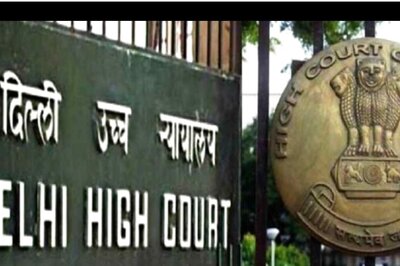
views
New Delhi: The Indian Council of Medical Research (ICMR) has lined up extensive studies in Gorakhpur, in order to understand the large-scale prevalence of Acute Encephalitis Syndrome (AES) and the deaths caused by it in the region.
Despite running a lab in the region for over 10 years, the disease that has claimed hundreds of lives in Gorakhpur, remains a puzzle for them. Doctors and health workers will study the patients, observe and interact with their families and collect samples to understand the disease.
The district in eastern Uttar Pradesh has for years been the epicentre of AES deaths.
In August, at least 60 children had perished at the government-run BRD Medical College and Hospital, triggering a national outrage. The Uttar Pradesh government was meted out with a lot of flak for its negligence, however, the hospital still continues to report an extensive number of encephalitis deaths every month.
The disease spreads across east UP and the western parts of neighbouring Bihar and close to the Nepal border. These patients flock to Gorakhpur's multi-specialty BRD Medical Hospital and the cases spike during monsoon, so do deaths.
“Almost 40-45 percent of cases are caused by scrub typhus,” said ICMR’s Director General, Dr. Soumya Swaminathan. “Nothing has been detected about the rest of the case and we're still in the dark.”
As the experts says, one has to understand these cases to know when and how people reach out for medical help.
Dr. Sanjay Mehendale, ICMR Additional DG, said a new research that would start in early 2018 will study over 50,000 people across Gorakhpur, Kushinagar and Maharajganj. The research will soon cover a wider area to observe at what point they seek medical help and study the behaviour of the population.
The research body will then make community interventions, explained Mehendale.
ICMR has been appointed by the Centre to set up a new institute in the region as part of the global Child Health Mortality Survey (CHAMS). It will have a special focus on the deaths of children below five years. Its ambitious task of this project will be to analyze the cause of each of these deaths and do post mortems. They would also collect tissue samples from the brain, liver or spleen for further analysis.
“The brain tissue of a person who has died of encephalitis can tell you a lot more than their blood samples,” said Swaminathan. “We can do a battery of microbiological tests on these tissue.”
For such an initiative, the ICMR has to train a number of doctors and health workers to record the vital stats of patients and then get consent from the informed families.
Dr. Swaminathan further pointed out that the actual reason behind the deaths are unknown in 70-80 percent cases in India as the parameters are not noted down correctly. She added that ICMR will either tap into resourceful Auxiliary Nurse Midwives (ANMs) or train community health workers to conduct verbal autopsies, which can later help the doctors understand what may have led to their deaths.
Verbal autopsy is a method of gathering as much information possible from the patient’s family by talking to them.
While the doctors agree that the study's procedure may be cause more stress to the bereaved family, it would ultimately do good to develop better facilities. The ICMR has also stressed on the importance of informed consent of the families involved, in order to harvest tissue samples.
The CHAMS project will initially run at Delhi’s Safdarjung Hospital for the first six months of 2018 and then move to Gorakhpur.
















Comments
0 comment